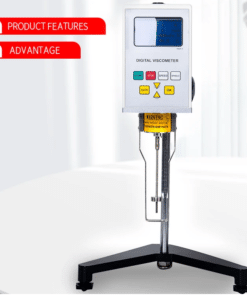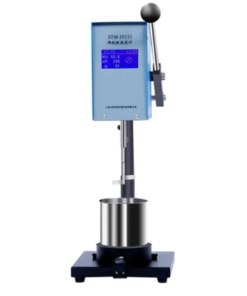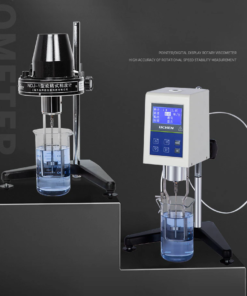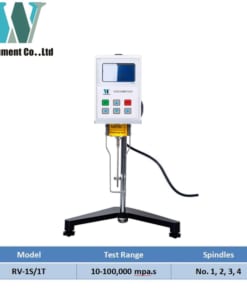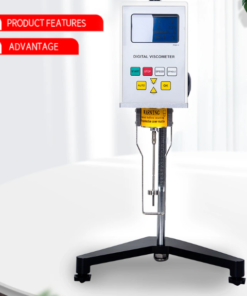Viscosimeter
A viscosimeter is a laboratory instrument used to measure the viscosity of a fluid. Viscosity is a measure of a fluid’s resistance to flow.
Types of Viscometers:
- Rotational Viscometers:
- Cone and Plate Viscometer: Uses a cone-shaped spindle that rotates in a sample.
- Cylinder Viscometer: Uses a rotating cylinder immersed in the sample.
- Capillary Viscometers:
- Measure the time it takes for a fixed volume of fluid to flow through a capillary tube.
- Ostwald Viscometer: A common type of capillary viscometer.
- Vibrational Viscometers:
- Use a vibrating element to measure the viscosity of the fluid.
- Suitable for a wide range of viscosities, from low to high.
Applications of Viscometers:
- Quality Control: Ensuring product consistency in industries like food, cosmetics, and pharmaceuticals.
- Research and Development: Studying the flow behavior of fluids.
- Paint and Coatings: Monitoring the viscosity of paints and coatings.
- Petroleum Industry: Measuring the viscosity of oils and fuels.
Factors Affecting Viscosity:
- Temperature: Viscosity decreases with increasing temperature.
- Pressure: Viscosity increases with increasing pressure.
- Shear Rate: The rate at which the fluid is deformed.
By understanding the viscosity of a fluid, researchers and engineers can optimize processes, improve product quality, and ensure efficient operations.
Viscosimeter
21.065.022 ₫ – 23.299.191 ₫

